Partners
groundWork is proud to act in partnership with the organisations listed below. These organisations are diverse, and provide critical support in a variety of ways to groundWork’s campaigns. Together, with the support of these organisations, we have built significant connections and a stronger environmental justice movement in South Africa, regionally and globally.
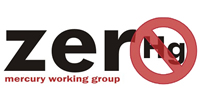
Zero Mercury Working Group
ZMWG is an international coalition of 98 public interest environmental and health non-governmental organizations from 54 countries from around the world formed in 2005 by the European Environmental Bureau and the Mercury Policy Project. ZMWG strives for zero supply, demand, and emissions of mercury from all anthropogenic sources, with the goal of reducing mercury in the global environment to a minimum.
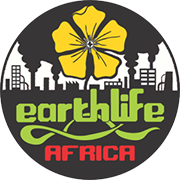
Earthlife Africa (Johannesburg)
ELA is a non-profit organisation, founded in Johannesburg, South Africa, in 1988. ELA’s vision is a society living within the ecological limits of sustainable development with an equitable distribution of resources for all, respect for all living things, and the end of social, economic and political exploitation. ELA seeks to encourage and support individuals, businesses and industries to reduce pollution, minimise waste and protect our natural resources.
Friends of the Earth International
FoEI is the world’s largest grassroots environmental network, uniting 74 national member groups and some 5,000 local activist groups on every continent. With over 2 million members and supporters around the world, FoEI campaigns on today’s most urgent environmental and social issues. FoEI challenges the current model of economic and corporate globalization, and promote solutions that will help to create environmentally sustainable and socially just societies.
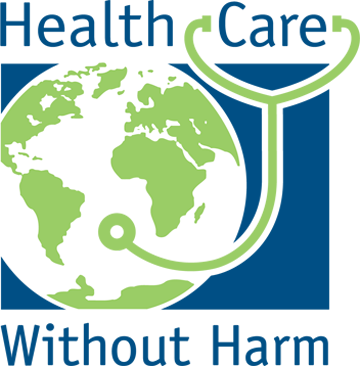
Centre for Environmental Rights
HCWH is an international coalition of hospitals and health care systems, medical professionals, community groups, health-affected constituencies, labor unions, environmental and environmental health organizations, and religious groups. The aim of HCWH is to work to transform the health sector worldwide, through the promotion of environmental health and justice.
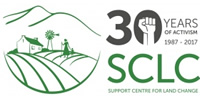
The Support Centre for Land Change
The Support Centre for Land Change (SCLC – formerly Southern Cape Land Committee) was established in 1987 in response to the threatened forced removal of the community of Lawaaikamp in George, under the Apartheid government. The SCLC is an NGO working with excluded rural women, men and youth in the Southern Cape and Central Karoo and western regions of the Eastern Cape towards agrarian transformations. The Committee challenges unjust societal conditions which maintained skewed power relationships we commit ourselves to conscientize and organize through supporting people-driven organization and movements for change.
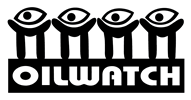
Oilwatch International
Oilwatch was created in February 1996 in Quito, Ecuador and the network now has members in over fifty countries around the world. National and regional networks have been created in Asia and Africa and it also has organisations in the global North to support its activities. Oilwatch aims to increase environmental awareness at a global level unravelling the impacts of the oil activities in tropical forests and local populations by establishing a link between the destruction of biodiversity, climate change, violations to human rights and the role of the Multilateral Banks of Credit.

South African Waste Pickers’ Association
SAWPA was established in 2007 and had its first national meeting in 2009 with attendance by 100 waste pickers from seven provinces in South Africa. The Association is an organized national movement of people working on landfill sites and in streets collecting recyclable waste materials and earning an income from selling this waste material for recycling. SAWPA was instrumental in ensuring that the government recognize waste pickers as part of the economy of the country through national legislation concerning waste management.
Global Anti-Incinerator Alliance – GAIA
With a worldwide alliance of more than 800 grassroots groups, non-governmental organizations, and individuals in over 90 countries whose ultimate vision is a just, toxic-free world without incineration. GAIA is an international alliance that works both against incinerators and for safe, sustainable and just alternatives. Our name reflects this dual purpose: The Global Anti-Incinerator Alliance: Mobilizing grassroots action against the spread of incinerators and other polluting, end-of-pipe waste technologies; and The Global Alliance for Incinerator Alternatives: Building the movement for environmental justice, local green economies, and creative zero waste solutions.
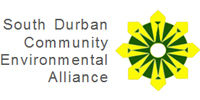
South Durban Community Environmental Alliance
SDCEA is an environmental justice organisation based in south Durban. It is made up of 16 affiliate organisations, and it has been active since its formation in 1996. It is considered successful for many reasons, one of which is that it is a vocal and vigilant grouping in terms of lobbying, reporting and researching industrial incidents and accidents in this area. It contributes to the struggle against environmental racism for environmental justice and environmental health.

Vaal Environmental Justice Alliance
VEJA was established in 2004 and formerly launched in 2006, with 13 affiliate organisations from surrounding areas in the Vaal Triangle in Gauteng, declared an Air Priority Area by the Minister of the Department of Environmental Affairs due to the region’s highly polluted air. The Alliance works to promote sustainability and environmental awareness in the communities with which it works. VEJA works on issues related to air quality, water, climate, energy, environmental health and waste.

Women in Informal Employment: Globalising and Organising
WIEGO was founded in 1997 and works with members from 40 countries working as a global action-research-policy network that seeks to improve the status of the working poor in the informal economy, especially women. Economic empowerment of these workers is at the heart of WIEGO’s mission. The organization believes that all workers should have equal economic opportunities and rights and be able to determine the conditions of their work and lives.
Centre for Environmental Rights
The Centre was established in October 2009 by eight civil society organisations (CSOs) in South Africa’s environmental and environmental justice sector. The Centre’s mission is to advance the realisation of environmental rights as guaranteed in the South African Constitution by providing support and legal representation to civil society organisations and communities who wish to protect their environmental rights, and by engaging in legal research, advocacy and litigation to achieve strategic change.
